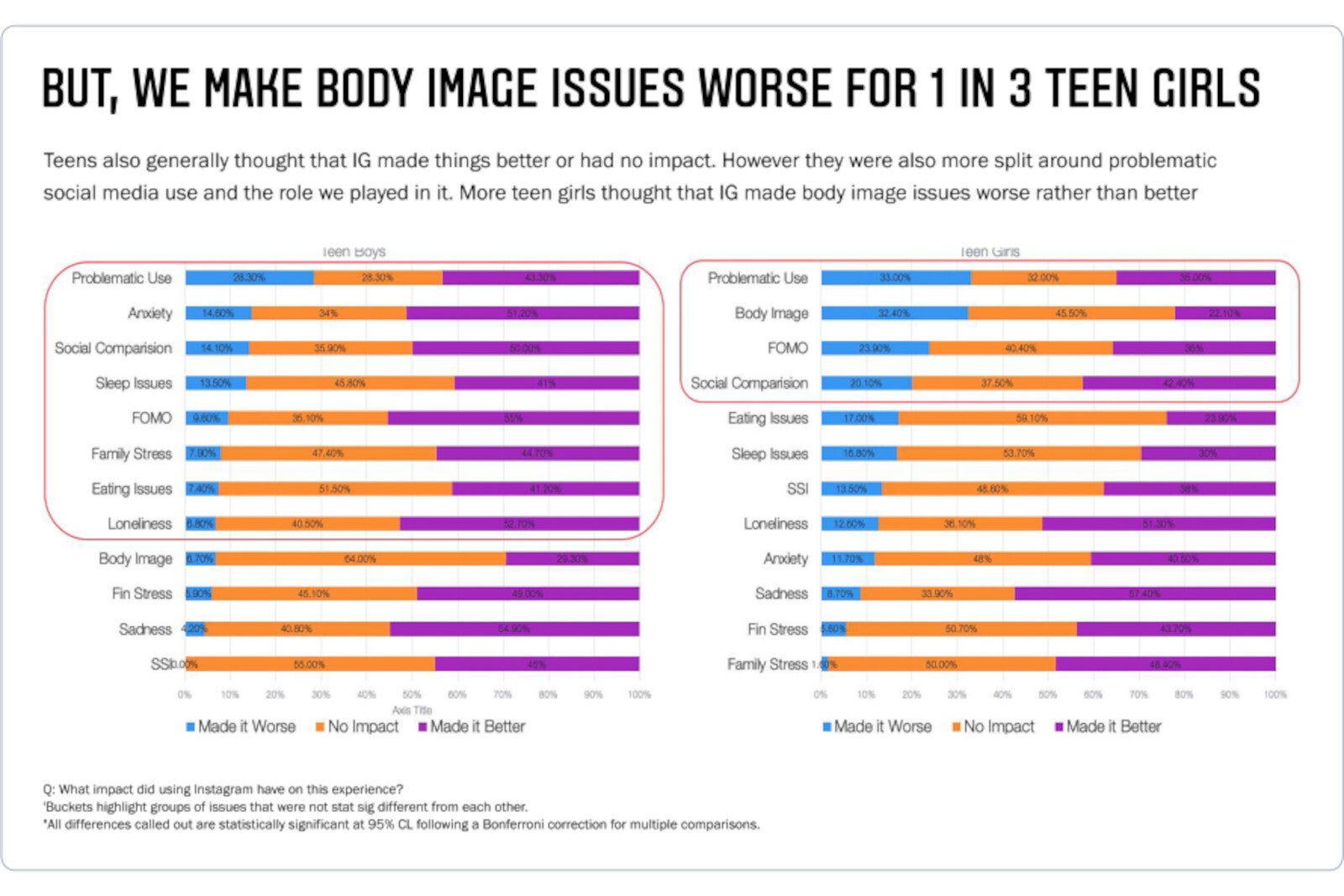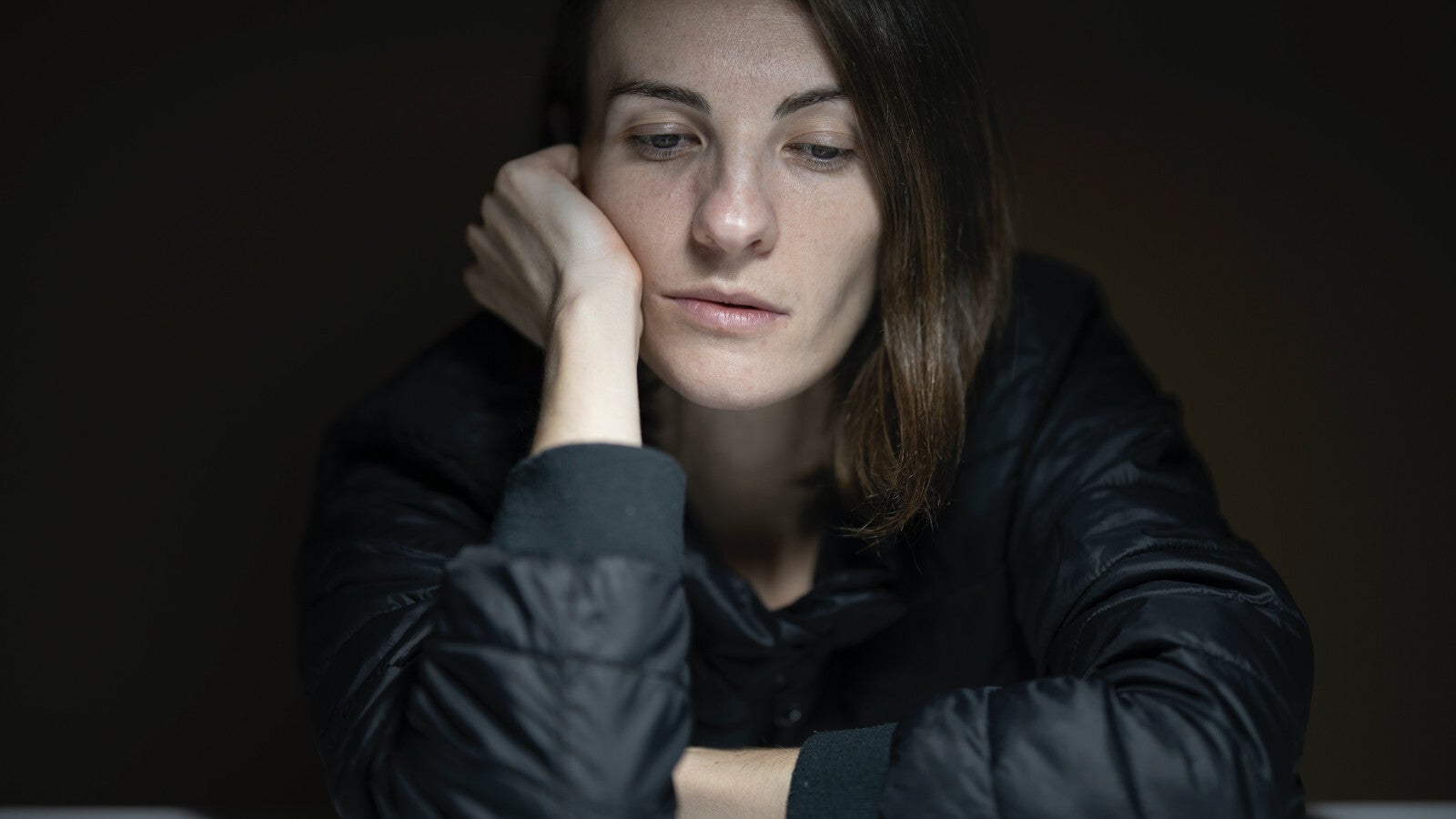Facebook fires back after statistics show Instagram is toxic to teens

A couple of weeks ago, the Wall Street Journal released some statistics that it had discovered about Instagram, produced by Facebook's own internal research team. The information showed that Facebook has long been aware of the negative effects the social media company has on teens' confidence, with one 2019 slide openly revealing that Instagram was found to create body image issues in one of three teenaged girls.

Facebook research slide first leaked by WSJ
Now, Facebook has released a long news post firing back at WSJ, calling its interpretation of the discovered data "simply not accurate" and taken completely out of context. It claims that only the negative parts of the research were published, while in fact, the whole truth was that teens are overwhelmingly reporting a positive effect from social media in many areas of their lives.
"Many teens we heard from feel that using Instagram helps them when they are struggling with the kinds of hard moments and issues teenagers have always faced," Facebook says.
One of Facebook's sources is a Harvard-produced survey and series of interviews, which seem to evidence that the positive effects teenagers feel outweighs the negative impacts some of them feel.
In the news release, Facebook went through WSJ's accusatory statements one by one, breaking them down in an effort to debunk them and prove that the actual company-internal research produced far less foreboding results than the journal made it seem.
"On 11 of the 12 issues in the slide referenced by the Journal, such as eating issues, loneliness, anxiety and sadness," Facebook says, "teenage girls who said they experienced these challenges were more likely to say that Instagram made these issues better vs. worse."

Facebook elaborates that there was one exception to this statistic, and that was in the sphere of body image. One in three girls who said they already struggled in this area (not 30% of all girls, as WSJ quoted), claimed that they were affected negatively by Instagram.
The original WSJ article also brought to light research showing it was not only teen girls' body image that was being damaged by the media platform, but teenaged boys' as well—namely 40% of those surveyed.
Facebook's response to this was, once again, that the main information had been omitted. Allegedly, the majority of teen boys—namely 50% of the US participants—actually experienced an improvement in self image when they browsed Instagram. 18% of this group emphasized that when they were on Instagram, they actually felt "much bеtter" about themselves.
According to Facebook, these results from the survey point to Instagram actually helping fix issues such as eating disorders, anxiety, or depression, rather than worsening them.
As for the focus group of 40 teen girl Instagrammers who admitted to struggling with problems such as those listed above, they said that despite Instagram's occasional collateral damage to their psyche, in the grand scheme of things, it actually made them feel better better overall.
Facebook goes on to say that the information WSJ omitted revealed that 8 out of 10 US teens who use Instagram said Instagram either improved their self image, or had no effect whatsoever on them.
For the record, Facebook still hasn't come forward to reveal any of the research it has produced over the years, other than what was already leaked by WSJ two weeks ago.
Despite its protestations, Facebook has been called to account for the accusations called out against the social media giant by WSJ. On September 30, its global head of safety Antigone Davis will be facing the Senate Commerce Subcommittee to discuss and provide answers to the concerning research that has been unearthed.
At the same meeting on Thursday, Davis will also be discussing its plans for creating an Instagram for Kids, which we know has been in the making since much earlier this year.
Follow us on Google News












Things that are NOT allowed:
To help keep our community safe and free from spam, we apply temporary limits to newly created accounts: